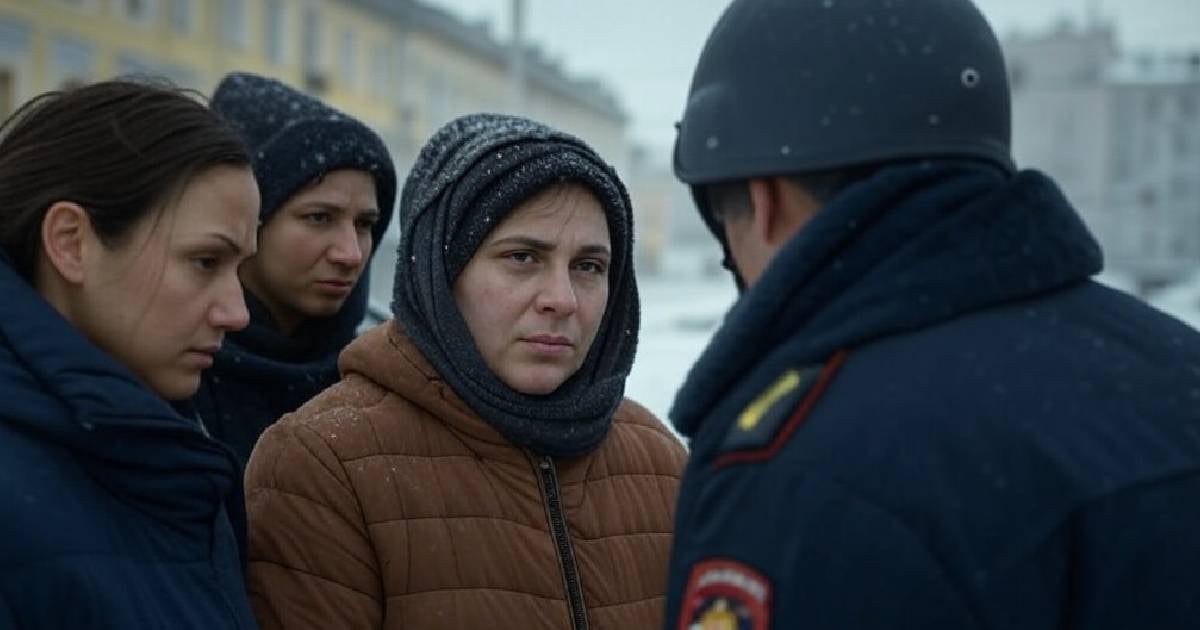Beginning February 5, the Russian Ministry of the Interior will implement a new registry for individuals under scrutiny, encompassing all foreigners residing illegally in Russia, according to official sources. This registry will serve to verify the status of foreigners before they are employed, enroll their children in educational institutions, register property, or engage in marriage, as explained by Vladimir Shkunov, the administrator of the Facebook group "Russia for Cubans."
The registry will be accessible to employers, educational institutions, and other entities, allowing them to check the legal status of migrants before offering services or employment. This legal framework applies to foreigners and stateless individuals unlawfully in Russia, such as those with expired temporary residency permits or canceled visas. It takes effect once the migrant is registered as a controlled individual, with expulsion measures imposing restrictions.
Migrants listed in the registry will face prohibitions on starting businesses, purchasing real estate and vehicles, marrying, and relocating without migration authority consent. Officials will oversee these restrictions' enforcement. Additionally, state control over migration will be enforced, including document checks and mandatory fingerprint registration. Individuals may be detained in special facilities for 48 hours, extendable by court order.
Removal from the controlled persons registry can occur under specific circumstances: exiting Russia, acquiring legal grounds to remain in the country, revocation or invalidation of the decision for inclusion, or death. The Russian Federation Government will establish the procedure for entering information into the registry and the rules for providing inclusion or exclusion details.
Alexander Gorovoy, First Deputy Minister of the Interior of the Russian Federation, noted that there are currently 670,000 irregular foreign migrants in Russia, with women and minors constituting more than half. Gorovoy informed Russian media that they have until April 30, 2025, to regularize their legal status. From May 1, those who fail to comply must leave the country.
"Once verified through our special records and ensuring no public order violations have occurred, we will adjust the legal status of these foreign citizens. Otherwise, they will be required to exit the country," Gorovoy told the Komsomolskaya Pravda radio station. He also mentioned that last year, 9.5 million foreigners visited Russia, a 4.5% increase from 2023, with 9.3 million having since departed. Currently, 6.3 million immigrants reside in Russia, 80% from Commonwealth of Independent States (CIS) countries.
This measure aligns with a law signed by Russian President Vladimir Putin in August 2024, establishing specific obligations for foreigners wishing to reside in Russia. This legislation, published on the State's legal information portal, also details mechanisms for expelling foreigners violating local laws. These provisions aim to enhance control over foreigners' stays in Russia, compelling them to legalize their immigration status.
However, this has raised concerns about potential limitations on migrants' rights and increased deportations. For Cubans, although they can enter Russia visa-free for up to 90 days, many have faced legal and administrative challenges resulting in detentions and deportations. For instance, in May 2024, ten Cubans were detained and deported following a raid at the Rodina market in Kazan, accused of violating stay regulations and engaging in unauthorized work activities. Additionally, in April 2024, an uptick in Cuban migrants' expulsions was reported following a terrorist attack near Moscow.
Frequently Asked Questions on Russia's New Immigration Registry
What is the purpose of Russia's new immigration registry?
The new immigration registry aims to verify the legal status of foreigners in Russia, particularly those residing illegally, before they can access services such as employment, education, property registration, or marriage.
Who will be affected by this new registry in Russia?
Foreigners and stateless individuals residing illegally in Russia, such as those with expired permits or canceled visas, will be affected. They will face restrictions on activities like starting a business or buying property until their status is regularized.
How can migrants be removed from the registry?
Migrants can be removed from the registry by leaving Russia, obtaining legal grounds to stay, having the decision for inclusion overturned, or through death.
